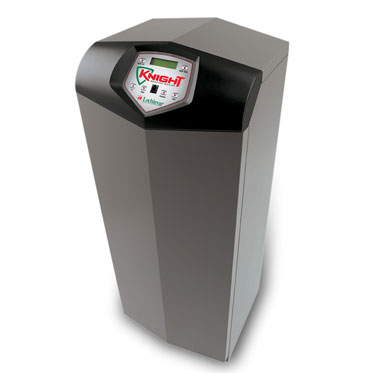BOILERS
Efficient Heat when you want it.
There are steam and hot water boilers. Steam systems can be either 2 or 1 pipe systems. Water is always 2 pipe and typically will have a circulation pump.
Similar to furnaces there are mid and high efficient boilers. There is no restriction on the sales of mid efficient boilers. Both styles will typically have a pump to circulate the water, either radiators or baseboard heat.
A boiler operates by heating water or glycol to a preset temperature (or in the case of steam, until it boils) and circulates that fluid throughout the home typically by radiators, baseboard heaters or in-floors.
The name "boiler" can be a misnomer in that, except for systems using steam radiators, the water never actually boils. Hydronic systems are being used more and more in new construction in North America for several reasons. Among the reasons are:
- They are more efficient and more economical than forced air.
- Initial installation can be more expensive.
- They provide more even, less fluctuating temperatures than forced-air systems.
- They do not introduce any dust, allergens, or mold into your home.


Water Heating with Your Boiler
There is the option to use your boiler to heat potable (domestic) hot water. This can be done within the boiler as an option to heat the domestic water through a heat exchanger before storing the hot water in a tank. These well-insulated tanks operate as a separate heating zone with substantially reduced heat losses and higher efficiencies as compared to tankless coils.

Proper maintenance of your boiler involves cleaning, checking input air dampers, pilot light (igniters) and adjusting burner tips. Draining vessels and removing sediment increase efficiency and reduce the risk of cracking.
Common Heating Problems
- Heating system is not working properly or turning on
- Can not regulate temperature
- Certain rooms or offices are too hot or too cold
- Heater air has odd odor
- Smell gas or something burning
- The thermostat is not working properly
- Odd noises from heater/furnace
- System fan always running
Energy Bill Savings Tips
Ensure your heating system is warming your home at optimum levels when you want it. Here's how you can save:
- Routine system inspections
- Sealing of vents and duct work
- Proper duct, window, vent and home insulation
- Adjustment of gas pressure
- Routine cleaning and servicing of HVAC motor, exchangers and coils
- Implementation of zoning systems
- Odd noises from heater/furnace
- Maintaining a clean blower

